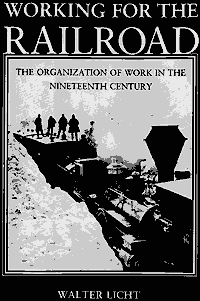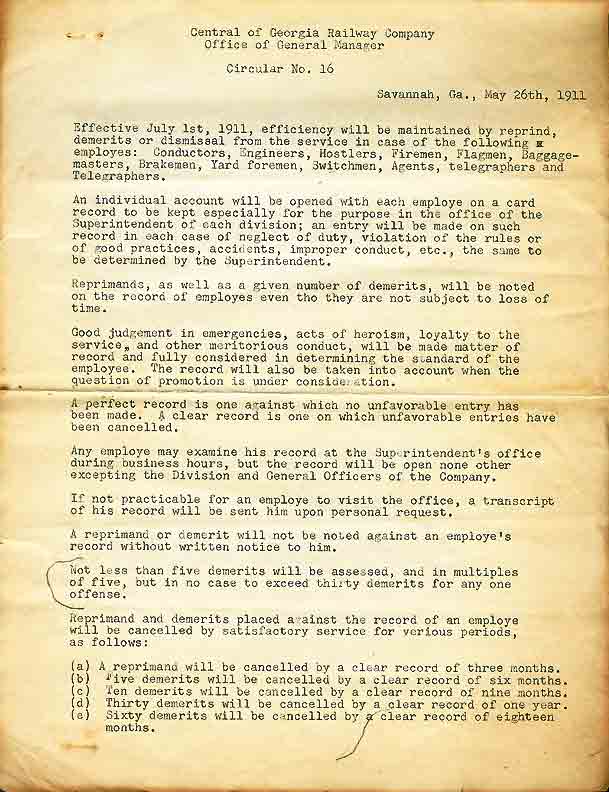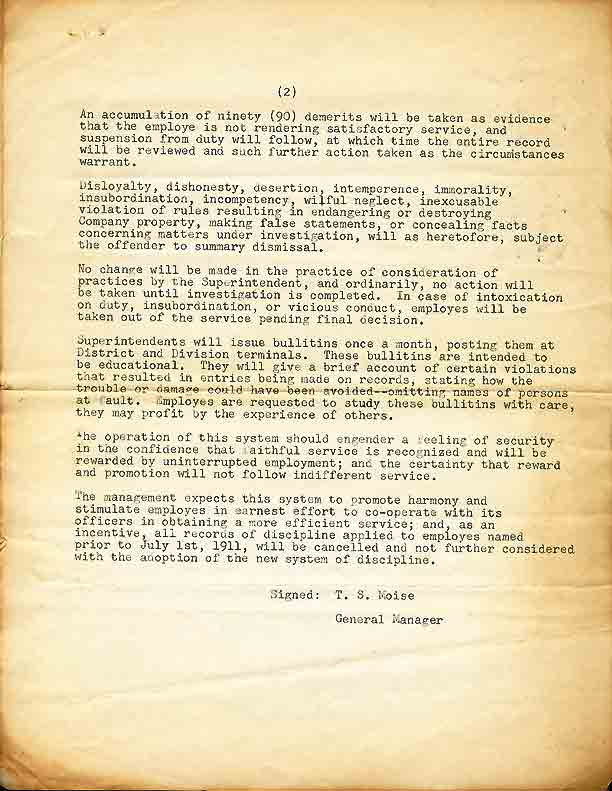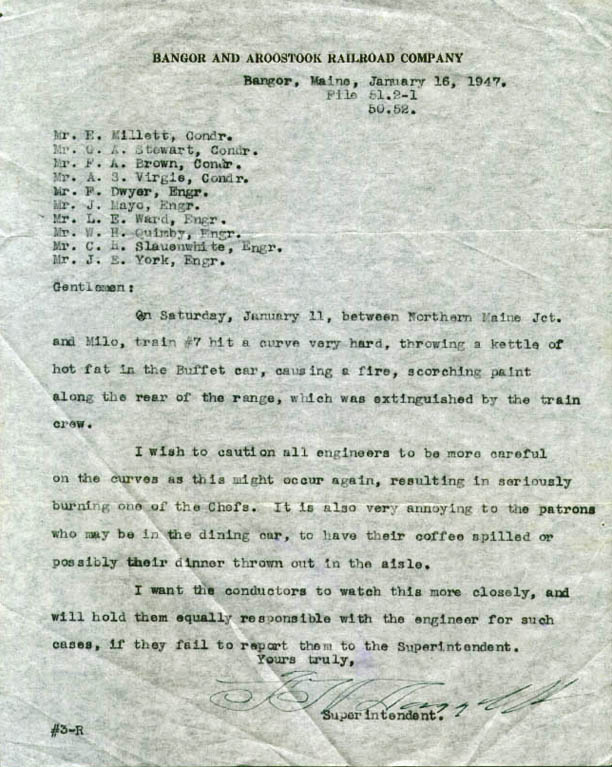mGrab Bagmm
Railroading Without Merit(s)mmmmmmmmmmmm
Railroading Without Merit(s)mmmmmmmmmmmm

If you are interested in railroad labor history, or are a railroad employee wondering why things are as they are, an absolutely essential read is Working for the Railroad, by Walter Licht (Princeton University Press, 1983; available used at Amazon.com), a well-known industry/technology historian. What's notable to us is that, while working conditions have improved dramatically since the book's 1835-1877 time frame, the general railroad mentality remains about the same.
Later on I learned what just about every blue collar worker knew: discipline was often arbitrary, subject to the whims of the offended official...and the state of his hangover. Other criteria for determining severity of discipline: prior to the infraction, did the official 'like' you; consider you a bad apple, a harmless screw-up, a friend, a dangerous adversary? Old head switchmen got off using their leading foot with impunity, because officials didn't dare mess with them - the old guys knew how to slow operations to a crawl. Conversely, an unpopular (with officers) SP engineer that I knew was once brought up on charges for using his leading foot after he had killed and tied down his engine (official: "the last direction of movement"). You get the idea.
During that (lengthy) class discussion, I inquired with, I thought, an obvious question: Why was there no provision for awarding merits, say, for being caught doing an unusually good job. This novel idea dumbfounded, confounded the teacher, who finally sputtered out, "Well, you are SUPPOSED to do your job!" That good performance also should be quantified, was above and beyond the instructor's, and SP's, ken. Merits were simply not part of the industry's decades-old traditional approach to supervision.
If I recall history correctly, back in the 1890's a fellow named Brown came up with what would become the prototype railroad disciplinary arrangement, the Brown System, whereby 'demerits' were assigned to wayward employees for their trespasses. Railroaders universally referred to these demerits as "brownies", and we wouldn't be surprised to hear that some railroads still employ them (write!).
Recently, signs of positive change have appeared, but pardon my overriding skepticism. According to one survey of business executives a few years back, U.S. railroad managers rate at absolute rock bottom in competency amongst all major industries, including fast food and hotel/motel. How do you move upwards from that?
Below is a 1905 Central of Georgia circular (Boy, I thought that I couldn't spel!) that is almost identical to the 1980's SP version under which I used to work. Yep, no merits - just demerits.
Further below is a 1947 memo from a Bangor and Aroostock superintendent. It's included here because it can be read several ways regarding the super's supervisory prowess and disciplinary intensions. I hope that his crews knew him well enough to get the true message. Superficially, it's darn amusing, though.



